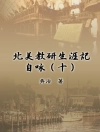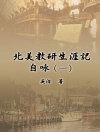The Smart Set Conversations
H. L. Mencken and George Jean Nathan
On the eve of the First World War, two iconoclastic young journalists, H. L. Mencken and George Jean Nathan, were offered the co-editorship of The Smart Set, a New-York based magazine with literary ambitions. During their nine years as co-editors, from 1914 until 1923, Mencken and Nathan transformed The Smart Set into a must-read of the early jazz era, established themselves as two of America’s foremost critics, and became bona fide celebrities in American popular culture. Indeed, ‘Mencken and Nathan’ were at times as popular collectively as they were separately.
Mencken and Nathan were co-editors of The Smart Set magazine from 1914 until 1923. They co-wrote several works together, works which appeared under their own names as well as under various noms de plume. Their most frequently used joint pen name was Owen Hatteras (i.e. Major Owen Hatteras, D.S.O.), which was also used as a ‘house pseudonym’ for The Smart Set.
Among their writings in The Smart Set are a jointly authored series of nine ‘Conversations, ‘ written dialogues between Mencken and Nathan that depict their personal interactions in various circumstances and locales, chronicling a series of events perhaps both real and imagined. Taken together, the ‘Conversations’ offer a plausible if somewhat exaggerated representation of their idiosyncratic relationship as authors and editors. Published here with a new Introduction and Glossary, The Smart Set ‘Conversations’ of H. L. Mencken and George Jean Nathan are reprinted in the present edition in their entirety.
H. L. Mencken and George Jean Nathan were controversial figures during their era. They were culture warriors, disruptors, instigators, masters of satire and irony. Their writings were often offensive to readers then and will likely engender only greater offense now. Contemporary readers may find The Smart Set ‘Conversations’ to be a timely reflection upon the history of the American public dialog. This edition of The Smart Set ‘Conversations’ is intended for mature readers interested in the history of arts and literature, as well as the American popular culture of the 1920s.
Giới thiệu về tác giả
George Jean Nathan was born in 1882 in Fort Wayne, Indiana to midwestern parents of European Jewish ancestry. Six years later the family moved to Cleveland, Ohio. His father was a successful wholesaler in wines and spirits and provided the young Nathan with a good education that included tutors at home in addition to his local schooling. Two of Nathan’s uncles played significant roles in contributing to his early interest in the theater. One was a theatrical promoter, the other a critic for the New York Herald and other publications. By the time he left Cleveland, Nathan had already witnessed performances by some of the most celebrated players of the era. He went on to attend university at Cornell, where he enjoyed the life of a clubman and excelled at fencing. After Cornell, Nathan studied in Italy before eventually settling in New York, where he was hired as a reporter at the Herald. Ill-suited to a reporter’s beat, Nathan chose instead to focus his writing on the entertainment world.












